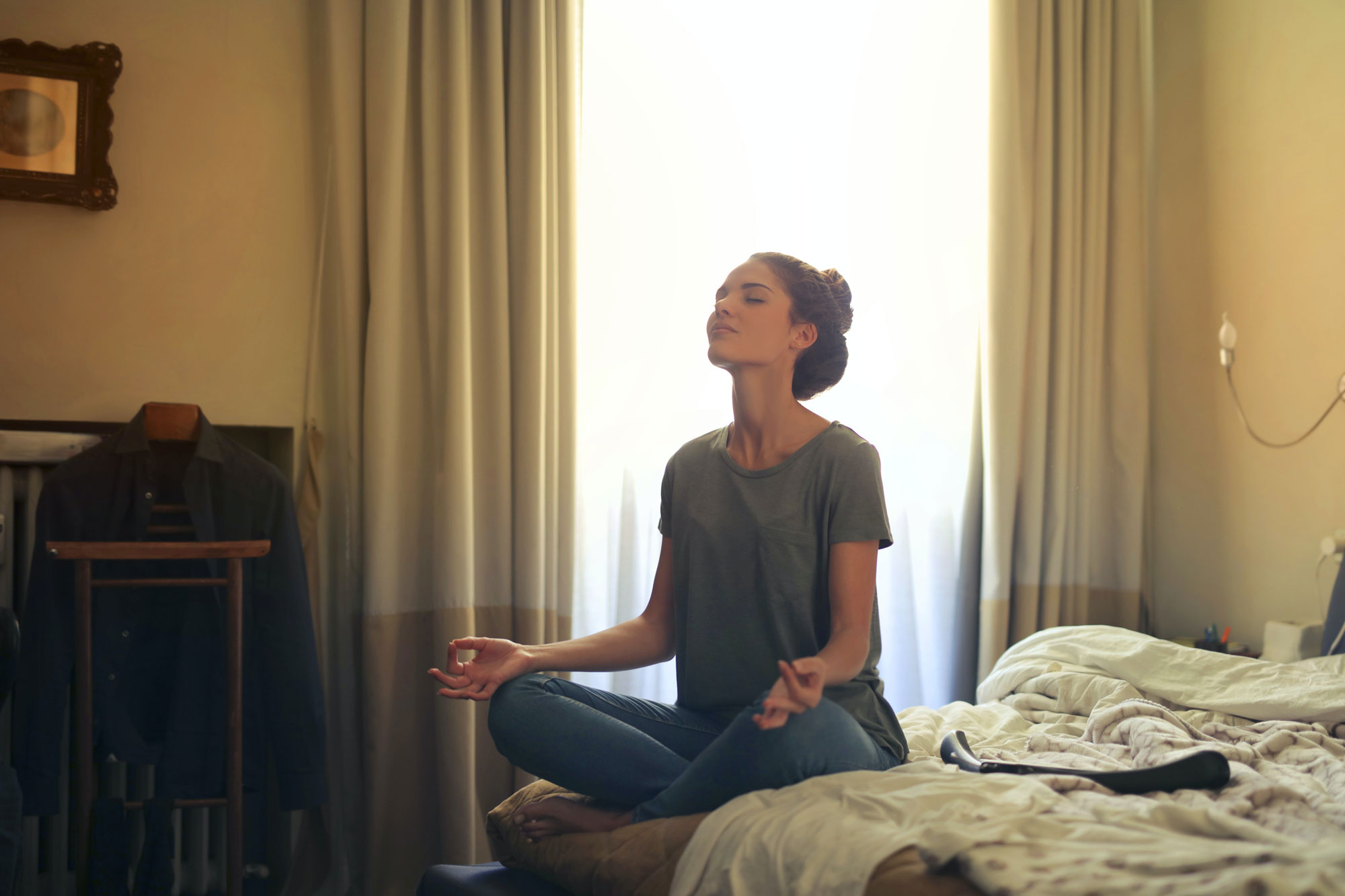By Matt Resteghini on Tue, May 26, 2020
One of your brain’s many functions is to detect and respond to threats to keep you safe. When your brain senses danger, it automatically triggers a response and your body experiences a burst of activity. Normally, your brain helps you react to and stay safe from small threats all throughout your day. However, very little about life is normal right now because of COVID-19. Whether we realize it or not, our brains are currently in overdrive.
Depending on your own personal circumstances, COVID-19 may be a threat to your health, your livelihood, your ability to socialize, and other aspects of your life. It’s unknown when the pandemic will end, which means these threats are ongoing. Because our brains aren’t able to resolve the threats and move on, we remain in a heightened state of response. (Not a healthy place to be stuck for an extended period of time.) Unfortunately, the sustained fear and uncertainty brought on by COVID-19 is causing stress and anxiety to skyrocket.
A Confirmed Increase in Stress and Anxiety
At Total Brain, we recently compiled a report that identifies some of the ways the COVID-19 outbreak is impacting mental health and well-being. We analyzed participant responses to assessments taken weekly from February 3 to April 19, 2020. The findings show that stress, anxiety, and feelings of depressive mood are rising as COVID-19 continues to spread across the U.S.
- Feelings of stress rose 38 percent since the first week of February, with a spike starting in the second half of March
- Anxiety levels increased 54 percent from February to April
- Feelings of depressive mood increased 61 percent between February and April
The mean scores for stress, anxiety, and depressive mood measured near average until March 9, and then rose steadily over the following weeks. This timing coincides with the WHO’s official declaration of the crisis as a worldwide pandemic on March 11, President Trump declaring a national emergency on March 13, and increased community spread of COVID-19. More details are available in our full Insights & Impact Report, Mental Health Update: Fear and Uncertainty in the Age of COVID-19.
It makes sense that Americans are struggling with stress and anxiety. Life in the U.S.—and around the world—took a sharp and unpleasant turn almost overnight. Some aspects of daily life will likely be permanently changed by the pandemic. For now, it’s clear that there is a long road ahead before life begins to feel normal again.
The good news is there are some steps we can all take to help alleviate stress and improve our mental well-being. One very simple and effective strategy for dealing with stress is slow, deep breathing.
The Power of Deep Breathing
Research shows there are many benefits to practicing slow, deep breathing. One benefit is stress relief. Taking slow, deep breaths—six breaths or less per minute—helps control the body’s automatic response to stress. Deep breathing switches off the sympathetic nervous system that is responsible for feeling stress and avoiding danger, and it activates the parasympathetic nervous system instead. With the parasympathetic system in charge, you can feel safe and relaxed. Essentially, deep breathing tells your body to relax so you won’t stay in a state of heightened response and stress.
Total Brain has several guided breathing exercises that help alleviate stress. One is MyCalmBeat. The MyCalmBeat exercise leads you to breathe at a pace of six breaths (or less) per minute. After just a few minutes, this exercise helps instantly slow down your body’s natural response to threats and fear. It can effectively help you reset and restore your calm when you are surrounded by fear and uncertainty, such as worries brought on by COVID-19 about your health or your financial well-being.
MyCalmBeat is one of the Total Brain tools that can be used over and over for an immediate impact whenever you are experiencing stress. The guided breathing practice is an important piece of Total Brain’s new Anxiety Journey that we developed to help Total Brain users deal with new anxieties and adjustments associated with COVID-19.
For a deeper dive into the benefits of slow, deep breathing and how to make it a routine practice, this podcast is a great resource: Solutions to Relieve Anxiety.
Not only are individuals benefiting from controlled breathing exercises like MyCalmBeat, employers are also recognizing the value in these types of practices. As COVID-19 drives up stress levels in the U.S., it is important for businesses to pay attention to the rising amounts of stress and anxiety employees are experiencing. Physical health and safety concerns, financial worries, increased workloads or schedule changes, and other factors are common stress triggers impacting workers across the U.S. For employers, encouraging employees to adopt stress-relieving practices such as controlled breathing—can help improve focus, reduce errors, maintain productivity, and more. This checklist is a good place to start if you want to identify what is causing stress for your employees so you can better support them and their mental health: Managing Through Pandemic: How to Improve Employees’ Mental Focus and Workplace Performance.
Total Brain is working to ensure that businesses that want to help their employees better manage stress and anxiety have tools available to do so. Right now, Total Brain is offering a free three-month corporate subscription to allow companies to offer mental health and self-care support and tools to employees quickly. To learn more and find out how to make Total Brain available to your employees, contact us today.




comments